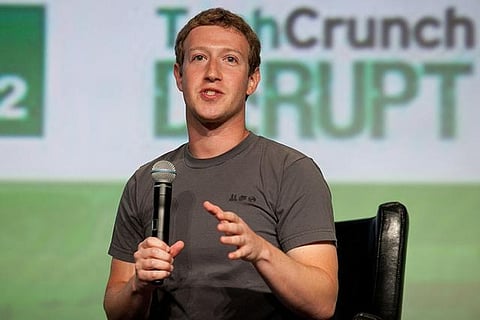
- Home
- न्यूजग्राम
- NewsGram USA
- India
- World
- Politics
- Entertainment
- Culture
- Lifestyle
- Economy
- Sports
- Sp. Coverage
- Misc.
- NewsGram Exclusive
- Jobs / Internships

The U.S. government's multi-pronged effort to persuade European allies to bar the Chinese firm Huawei from supplying key elements of state-of-the-art 5G mobile data networks appears to have foundered, raising questions not only about the future of key intelligence-sharing relationships but also about the future of mobile technology in the U.S. itself.
U.S. officials used warnings of potential "backdoor" technology that could give Chinese intelligence services access to critical telecommunications infrastructure to try to warn allies away from Huawei equipment. Secretary of State Mike Pompeo went as far as warning allies that the U.S. would have no choice but to restrict the information it shares with key allies.
In the end, the push appears to have been in vain. The EU announced Tuesday that it will allow carriers to move forward with the installation of Huawei equipment. Officials said EU countries' sharing information about 5G security threats will be sufficient to safeguard their high-tech communication networks.
Some of the United States' staunchest allies have made it plain that they do not see the Huawei threat as Washington does. Germany has announced that it will not ban the Chinese firm from its networks, and regulators in Britain have said that they are satisfied that any threat can be mitigated by inspection and monitoring.
Secretary of State Mike Pompeo answers a question during a news conference, March 26, 2019, at the Department of State in Washington. VOA
Last month, an effort to block Huawei from participating in the 5G rollout in France died in the Senate, and Italy has not only embraced Huawei, but has become the first European country to accept funding from Beijing as part of China's "Belt and Road" program of infrastructure investment.
This is not to say that Europe is ignoring potential security threats from Huawei. On March 12, the European Parliament passed a new Cybersecurity Act, creating standards for telecommunications equipment. While it did not single out Chinese firms, the language of the new law makes it clear that equipment from companies located in countries that pose potential security threats will receive extra attention.
On Tuesday, the EU's digital chief said EU countries will have until the end of June to assess cybersecurity risks related to 5G, leading to a bloc-wide assessment by October. In the Pacific, U.S. allies in closer proximity to China have been more aggressive in taking action against Huawei. The governments of both Australia and New Zealand have already barred their domestic carriers from using Huawei equipment in their 5G networks.
Washington's inability to create consensus among its allies on such a critical issue has puzzled many experts. Key sectors of the U.S. intelligence community identified Huawei as a major national security concern at least a decade ago. However, the concerted effort to go public with concerns about allowing the company to participate in the rollout of 5G technology only came to the fore within the past year — long after many say such conversations ought to have taken place.
"It is late in the game," said Paul Triolo, practice head for Geo-Technology at the Eurasia Group and China Digital Economy Fellow at the New America Foundation. "I was in Europe last week and I had a German official say, 'Gosh, I wish we'd had this debate three years ago.' That's the problem. The industry has moved in this direction in lockstep for the past seven or eight years and now, you're throwing, from the sidelines, a big smoke bomb."
EU's digital chief said EU countries will have until the end of June to assess cybersecurity risks related to 5G, leading to a bloc-wide assessment by October. VOA
Industry insiders in Europe reacted with a mix of incredulity and alarm to the U.S. proposals. Vodafone's chief technology officer, Scott Petty, last week told the BBC that a ban on Huawei wouldn't just be forward-looking. It would require tearing out the company's equipment already incorporated into existing mobile networks. "The cost of doing that runs into the hundreds of millions and will dramatically affect our 5G business case," he told the news service. "We would have to slow down the deployment of 5G very significantly."
